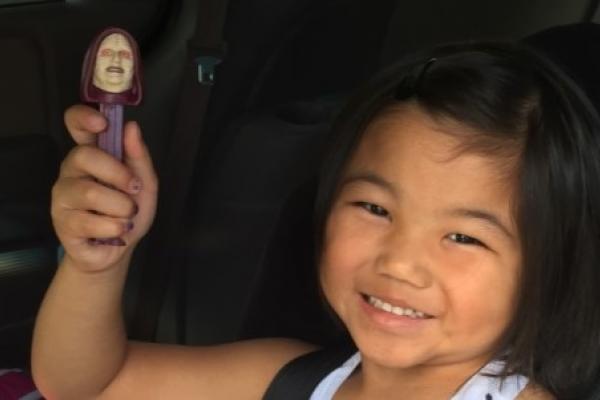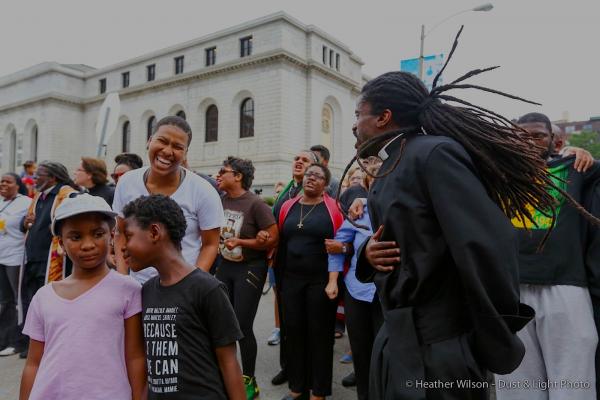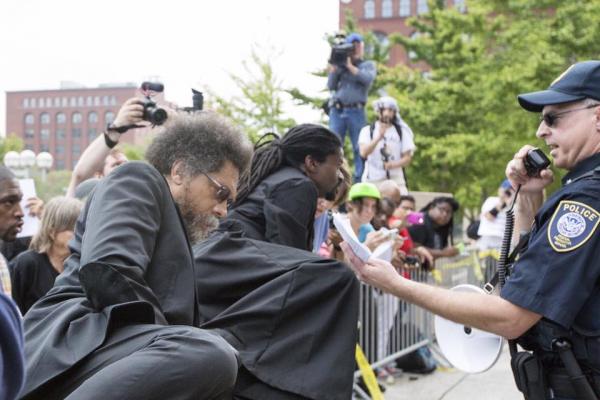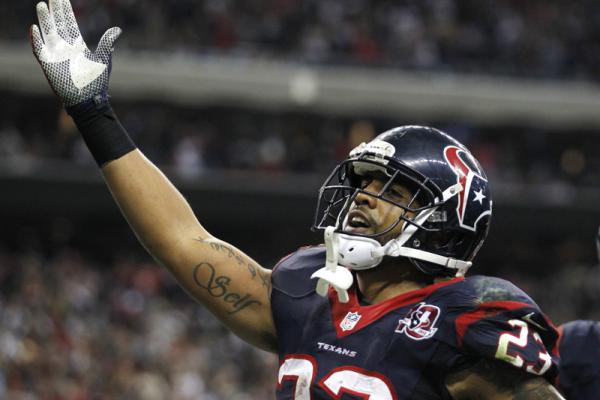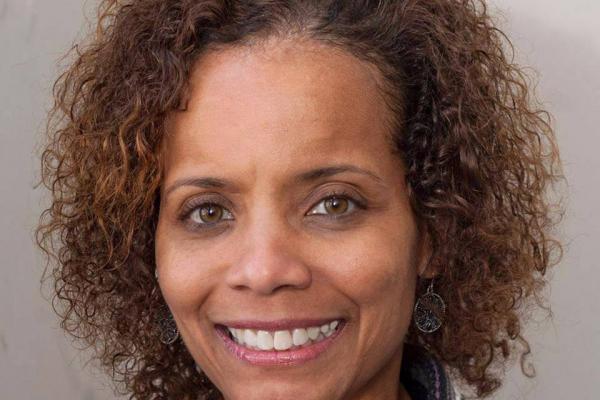1. This Is What It’s Like Being a Gay Christian Rock Star
A year after Christian singer Vicky Beeching announced she is gay, BuzzFeed followed up with the songstress on reactions from the Christian community and her life since. “At times it felt like there wasn’t much respect for me as a person. It was either ‘We’re going to grab her as a mascot’ or ‘We’re going to shoot her as an example of this evil.’ For many conservative Christians, I became a sign that people were slipping down a slippery slope into unimaginable sin. People forget there’s a person hiding under a duvet wondering if they’re going to have a life left.”
Christians believe that Jesus definitively defeated the forces of evil. For Christians, faith is trusting that the way to defeat evil is the same way that Jesus defeated evil on the cross and in the resurrection. Jesus was no Jedi. He didn’t use “good violence” to protect himself or others from the evil forces that converged against him. Nor did he run from evil. Rather, he defeated evil by entering into it, forgiving it on the cross, and offering peace to it in the resurrection.
Of course, many – even those who profess to follow him – think Jesus is absolutely crazy. As the apostle Paul wrote, “We proclaim Christ crucified, a stumbling block to Jews and foolishness to Gentiles.” It’s true that following Jesus by responding to evil with nonviolent love is risky. After all, Christ was killed, as were his disciples. But fighting violence with violence is also risky and only perpetuates a mimetic cycle of violence.
PHOTO ESSAY: On Monday, fifty-seven people were arrested as part of the #UnitedWeFight march and peaceful civil disobedience at the Thomas F. Eagleton U.S. Courthouse. The march was in commemoration of the year-long resistance sparked in #Ferguson by the murder of #MikeBrown.
We think it's wrong for a woman, much less a mother, to be angry. And so when anger inevitably, righteously, hits us — with its cousin fatigue and its brother frustration — we don't know what to do except to bury it beneath a smile that gets thinner and weaker as the day winds on.
We all get angry, though. It is a function of being human, and I daresay without anger we would never have won women the right to vote, school desegregation, or any other host of advances that came about when people got righteously angry and unleashed the power of justice and the Holy Spirit.
So be angry when you are angry. The Bible says so. Do not be ashamed to say, in the moment, "This is not right. I'm angry."
Every year, U.S. authorities hold over 400,000 suspected immigration violators in 250 jails and detention centers across the nation . Anyone suspected of violating immigration law — including permanent U.S. residents, asylum seekers, pregnant women, victims of torture and children — are subject to mandatory detention without trial and are often held indefinitely for weeks, months, or even years. Ruiz’s story is a testament to the brokenness of the immigrant detention industry.
Although the U.S. government has the right to exercise authority over its borders, it also has legal and moral obligations to protect the human rights of immigrants. From a Christian ethics perspective, it is our obligation to welcome the stranger, provide sanctuary to our brothers and sisters in Christ, and work towards the liberation of all. Mandatory immigrant detention not only deprives people of their dignity — it is also illegal, ineffective, and inhumane.
“If you want a world where #BlackLivesMatter … if you want dignity for #Sikhs and #Muslims and the #99Percent, then #NetNeutrality is your cause too.”
So says Valarie Kaur, an American Sikh lawyer and filmmaker who thinks these popular hashtags are more than just clickbait: they represent the most pressing social justice issues of our time.
Interfaith leaders have long rallied for racial and economic justice and railed against police brutality. Now, with her Faithful Internet campaign, Kaur is calling on America’s religious communities to fight just as hard for net neutrality.
Clerics in Kenya are backing a presidential decree banning homemade brews, largely blamed for a recent spate of deaths in the East African nation.
The homemade alcoholic drinks, popularly dubbed chang’aa (“kill me quick”) or Kumi Kumi (ten-ten shillings), are popular with the poor, who cannot afford commercially brewed bottled beer, which is heavily taxed.
Until recently, most Kenyan homemade brews were safe and were consumed at traditional parties, but unscrupulous brewers in the last few years have been introducing industrial chemicals such as methanol to make the drinks stronger and to quicken the brewing process, turning the drinks into poisons.
The latest killing happened two days before the 1-year anniversary of Michael Brown’s death when Christian Taylor, 19, crashed his SUV through the window of a car dealership in Arlington, Texas. Officers shot him in the course of a struggle. In fact, as I write this, there have been 601 lethal police shootings in 2015, 24 of them unarmed black men, according to an ongoing independent analysis by Washington Post: That’s an average of two unarmed black men shot dead by cops per month since January. This number does not include police shootings of black women, police killings that did not involve gunfire, or deaths while in police custody. Freddie Gray’s and Sandra Bland’s deaths are not included in the Washington Post tally.
Over the course of the year since Michael Brown died, we have learned critical lessons that have fueled the movement, bringing together young activists, clergy, and evangelicals in unlikely, yet cohesive alliance.
Professional football isn’t known for being a place that encourages deep intellectual reflection. With its history of silence on head injuries, locker-room harassment, and macho culture, the NFL would be the last place you would expect to find a philosopher and a poet — and an atheist to boot.
But all of those things come together in Houston Texans running back Arian Foster, who is the subject of a feature in ESPN The Magazine’s Aug. 18 College Football Preview Issue, published late last week. He revealed that he didn’t believe in God. That’s unusual in a league where players regularly point to the sky (never mind the questionable theology behind the assumption that heaven is somewhere up in the sky) and meet for regular Bible studies.
Young people ignited by injustice, refusing to back down. A nation waking up to the reality of racial disparities. And a church that can no longer remain silent. This, says Eden Theological Seminary professor Leah Francis Gunning, is the real “Ferguson Effect.” As she protested in Ferguson over the past year, Gunning collected interviews from clergy and young organizers. The result is Ferguson and Faith: Sparking Leadership & Awakening Community (Chalice Press, 2015), a behind-the-scenes look at the role of the church in the Black Lives Matter movement. Sojourners interviewed Francis to learn more about the religious community’s role in supporting and sustaining a racial justice movement started by young activists.
